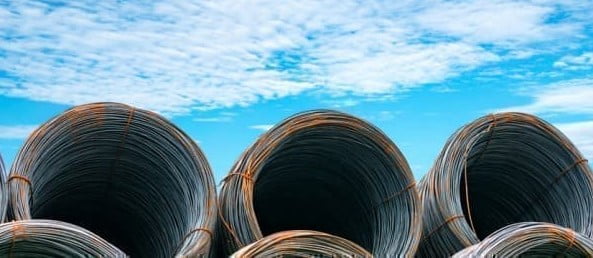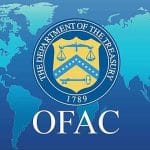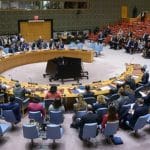On April 12, the U.S. Department of the Treasury, in coordination with the United Kingdom, issued two new prohibitions in order to disrupt the revenue that Russia earns from its export of aluminum, copper, and nickel.
This latest action prohibits the import of Russian-origin aluminum, copper, and nickel into the United States, and limits the use of Russian-origin aluminum, copper, and nickel on global metal exchanges and in over-the-counter derivatives trading. This action solidifies the U.S. Treasury’s implementation of the G7 Leaders’ Statement to reduce Russia’s revenues from metals.
“Our new prohibitions on key metals, in coordination with our partners in the United Kingdom, will continue to target the revenue Russia can earn to continue its brutal war against Ukraine,” said Secretary of the Treasury Janet L. Yellen in a media statement. She added, “By taking this action in a targeted and responsible manner, we will reduce Russia’s earnings while protecting our partners and allies from unwanted spillover effects.”
U.K. Exchequer swings into tandem action
“Disabling Putin’s capacity to wage his illegal war in Ukraine is better achieved when we act alongside our allies,” said Jeremy Hunt, U.K. Chancellor of the Exchequer. “Thanks to Britain’s leadership in this area, our decisive action with the U.S. to jointly ban Russian metals from the two largest exchanges will prevent the Kremlin funneling more cash into its war machine.”
As a result of the collective actions announced April 12, metal exchanges, like the London Metal Exchange (LME) and Chicago Mercantile Exchange (CME), will be prohibited from accepting new aluminum, copper, and nickel produced by Russia. Metal exchanges provide a central role in facilitating the trading of industrial metals around the globe. By taking joint action, the United States and U.K. are depriving Russia and its metals producers of an important source of revenue.
New rules issued
To implement this policy, Treasury has issued a new determination under E.O. 14068 prohibiting the importation into the United States of aluminum, copper, and nickel of Russian Federation origin produced on or after April 13, 2024 (the “metals”). The U.S. Treasury also issued a complementary determination under Executive Order (E.O.) 14071 that prohibits the exportation, re-exportation, sale, or supply to any person located in the Russian Federation of (1) warranting services for the metals produced on or after April 13, 2024, on a global metal exchange and (2) services to acquire the metals produced on or after April 13, 2024 as part of the physical settlement of a derivative contract.
Not a panacea
The new measures will have limited impact on current Russian revenues, at least in the short term. Existing stocks of Russian metal on global exchanges are exempt from the new measures and can still be traded and withdrawn from warehouses. Also, trade of Russian metals outside of the exchanges’ system is not restricted by the sanctions and a gradual increase in Russian metal sales to Asia has been clear since 2022.
Physical supplies of Russian metals to the U.K. itself had already dried up as Britain banned most imports in 2023. Supplies to the United States have also been miniscule as Washington imposed high tariffs on imports of Russian metals last year.
The U.S. has previously imposed sanctions on Russian main gold and diamond producers as well as several Russian copper producers.
The EU still accepts Russian primary aluminum, though some consumers have self-sanctioned.
Russia remains a major metals producer. Its share in global production is five percent of aluminum, six percent of refined nickel and four percent of copper.








